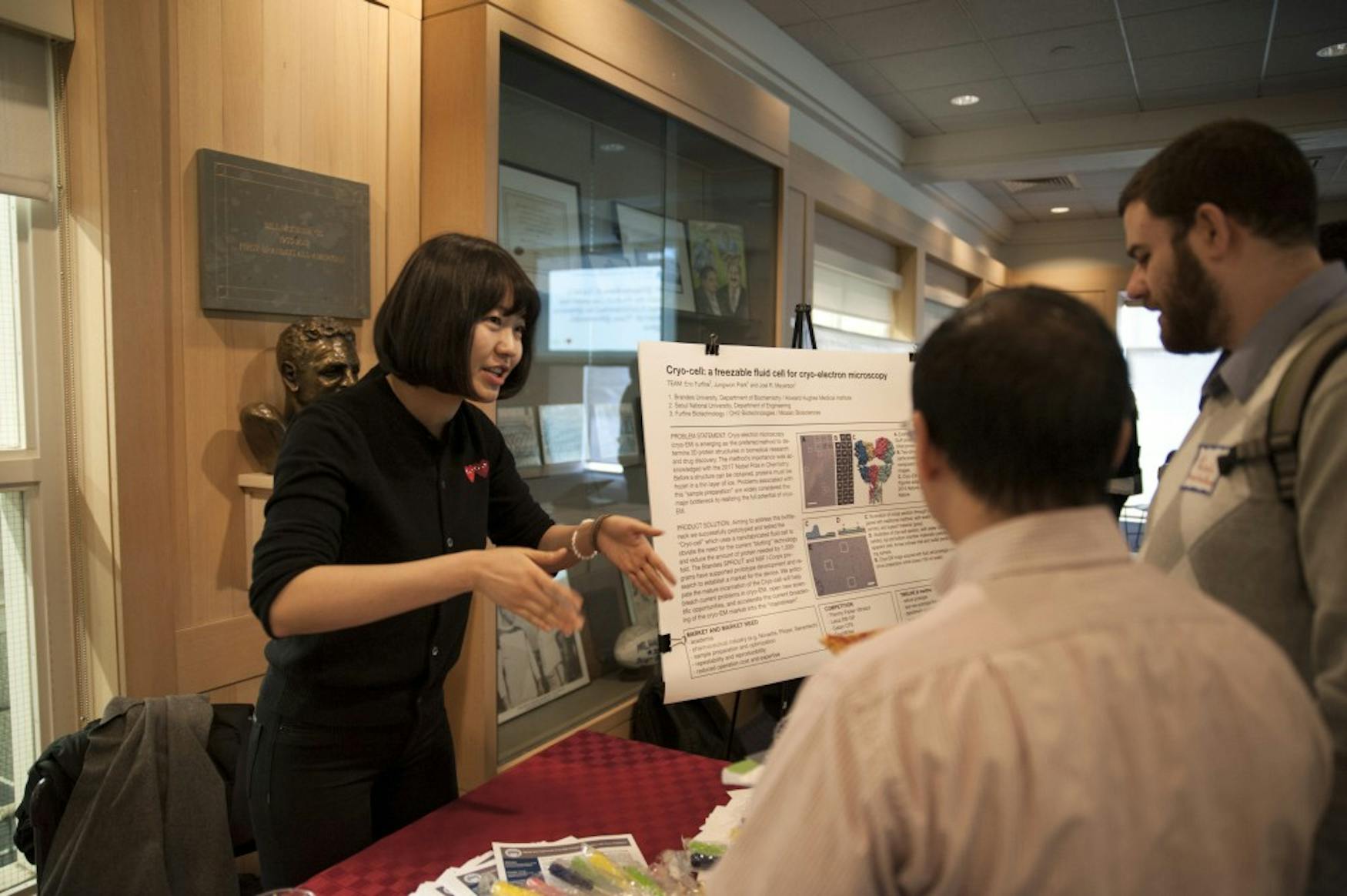Mass Innovation Night presents Univ. startups
Wednesday night was standing-room-only in the Napoli Trophy Room of the Gosman Sports and Convocation Center as entrepreneurs, investors and anyone interested in innovation gathered for the Brandeis-hosted Mass Innovation Night.
Mass Innovation Nights is a Boston organization aimed at promoting local innovation. So far, it has helped launch thousands of products and has connected dozens of job-seekers to hiring managers, according to their website. Using the hashtag #MIN108, attendees were encouraged to share photos on social media throughout the night to promote the 108th night hosted by Mass Innovation Nights.
All startups in attendance were founded by Brandeis students, faculty and alumni. “Universities like Brandeis are hotbeds of innovation and startups,” Bobbie Carlton, founder of Innovation Nights, said in a March 6 interview with Globe News Wire.
Carlton introduced the evening as a “visibility event” aimed at promoting the participating companies. Each company was given a table, where they were encouraged to network with various attendees for the first hour. A show of hands revealed that almost half of those in attendance had been to a Mass Innovation Night before, though many had never been to the Brandeis campus.
The companies also each had a conversation with the night’s “Expert Corner,” a panel of experienced innovators. Wednesday’s panel included Brandeis’ Prof. Pito Salas (COSI) and Prof. Ben Gomes-Casseres (BUS), as well as Eva Kaniasty, the founder of Boston consulting firm RedPill UX; Neil McLaughlin of TCF Law Group and Ian Roy, the head of the Brandeis MakerLab.
Prior to the start of the night, company profiles were uploaded to the event website, and the public was invited to vote for their favorites. The top four companies were each given five minutes to present their idea and then were encouraged to answer two audience questions.
First to present was GreenChoice, a startup focused on helping consumers evaluate their food products’ “freshness, nutritional value, health safety, animal welfare practices, corporate sustainability and transparency,” according to the company description provided to all event attendees. Next was Thermagenix, a company which makes “easy-to-use reagents that improve product yield and specificity in PCR amplifications.”
Relational Coordination Analytics also presented their business model, which helps companies improve their organizational performance through “a scientifically rigorous, validated diagnostic … survey.” Last to present was WorkAround, a company focused on helping “companies get more done for less, while giving jobs to refugees.”
Other companies in attendance included Modibrace, ClearField Capital, Sclervey, Vata Verks, Tranquilo Mat and Cyro-cell.
Carlton encouraged audience members to keep their phones out during the night so they could post to social media and support their favorite companies. Each person attending the event was given a “tweet sheet” with QR codes designed to give shout-outs to featured companies. Each attendee was allowed to vote for one of their favorite companies.
The grand prize of the evening went to Articulate Bio, a science company focused on creating “a portfolio of injectable viscoelastic gels for lubricating and cushioning diseased soft tissues.” GreenScore, Thermagenex and WordAround were celebrated as MIN favorites.
The evening was one of networking as well as presentations. Hiring managers looking to fill positions wore red dots on their name tags so they might connect with potential employees; business cards exchanged hands and new connections were formed. In short, the night worked to fulfill MIN’s goal: as its website states, “We want to connect members of the local innovation community.”




Please note All comments are eligible for publication in The Justice.